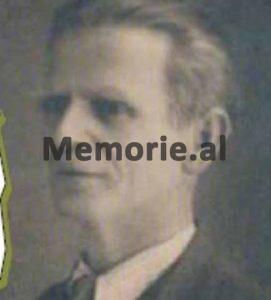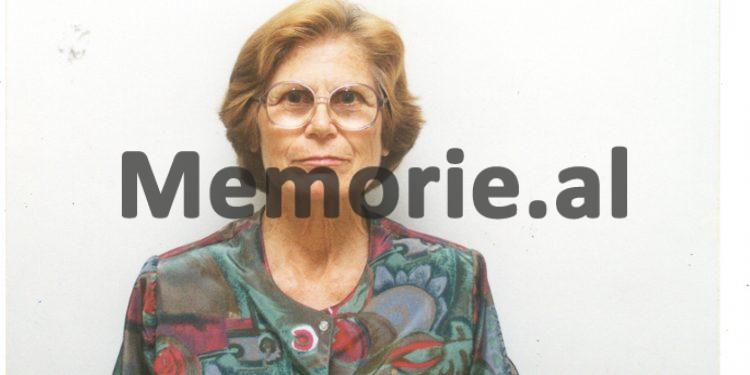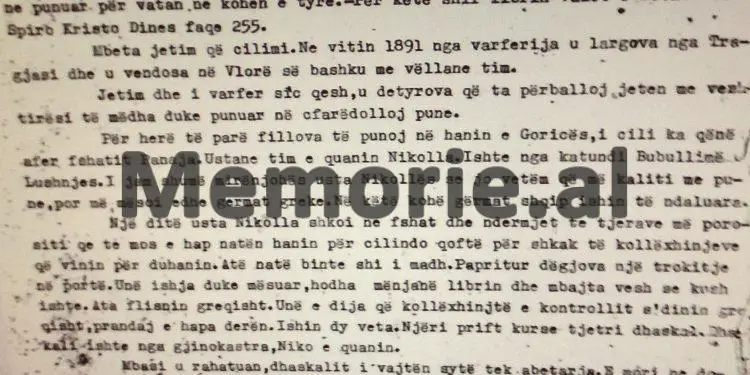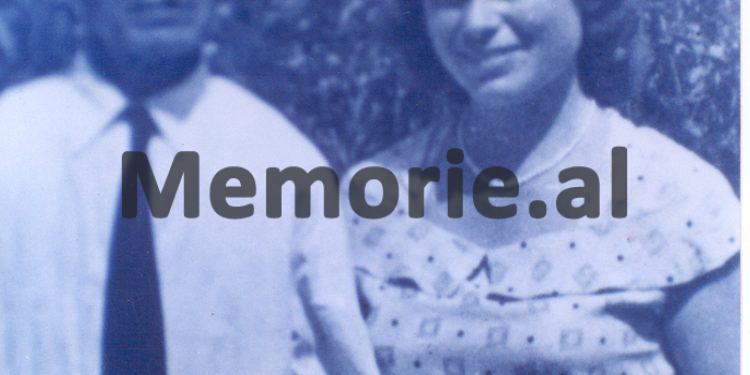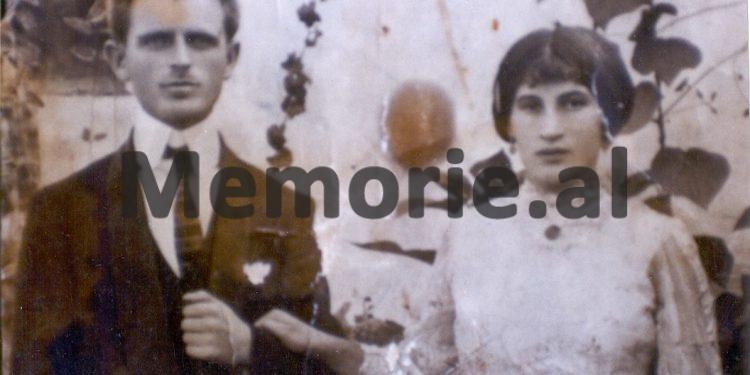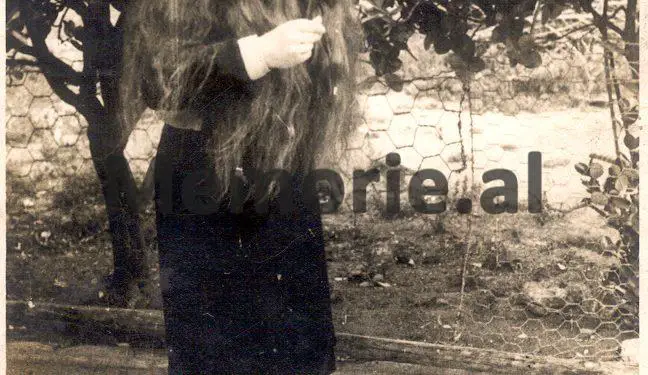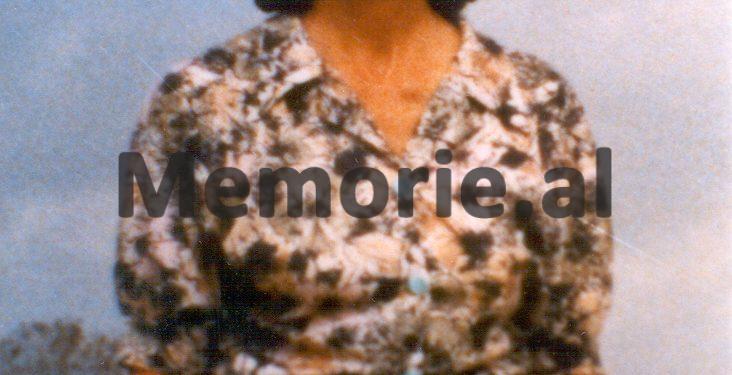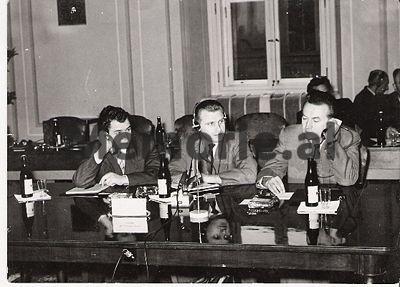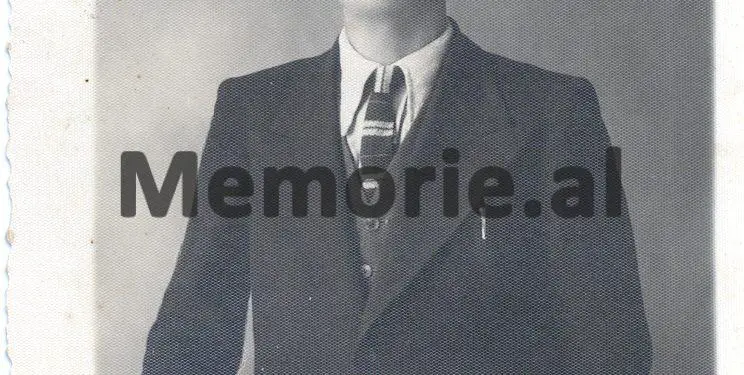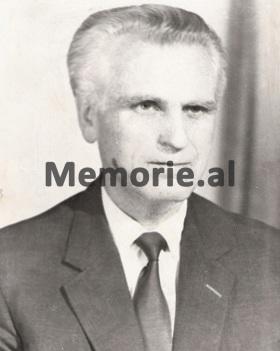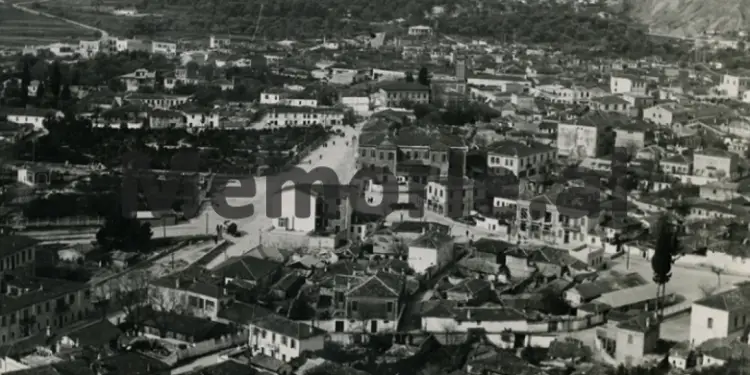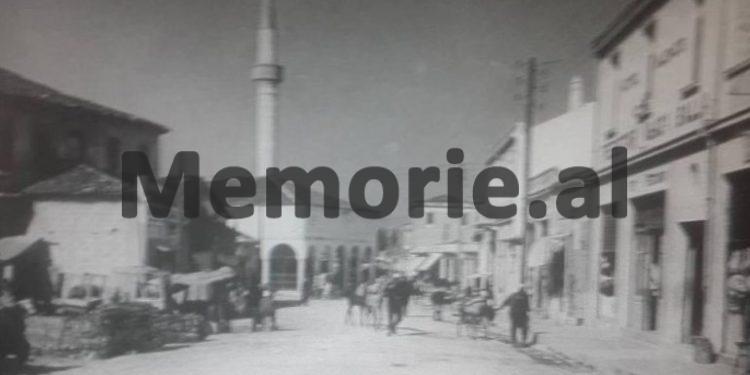Dashnor Kaloçi
Memorie.al publishes the unknown story of Ibrahim Shyti, originally from the village of Tragjas in Vlora, who was interned by the Turks at an early age after writing letters in Albanian, learning to read and write from Kristoforidhi’s primer. Testimony of his daughter, Godiva Shyti, who tells the story of her family from four brothers who were educated at European universities, Hector who was executed at the Pristina Camp, Pupo, an economist at the State Audit Commission, Wilhelm ing. Electrician at the Fier TPP, Lutheran economist who refused to meet Hysni Kapo when he went home, as well as the will of her father, Ibrahim, the famous patriot and publicist, who since the first years of the century passed, opened the first bookstore in the city of Vlora. The whole story of Shyti in the autobiography he wrote himself, and the documents in his archive?
“Shortly before our father, Ibrahim Shyti, passed away, sometime in mid-June 1972, he called me and said, ‘Listen, Godiva, I believe that after my death, our grandchildren will not have any. great interest in my archive, the photo library and the library, so please, so that they don’t get lost, I’m leaving it to you to give to the state ‘. Since then and continuously for more than 35 years, I have made some selection and systematization of all the documentation in our father’s archive, dealing mainly with the rather rich correspondence he has kept with many of Albania’s most famous patriots, which began in 1908 and ended in 1972 when he passed away. Among those hundreds of letters, the names of prominent patriots such as Leonidha Naçi, Josif Bagëri, Kristo Floqi, Kristo Luarasi, Milo Duçi, Jani Vruho, Dhimitër Berati, Qerim Panariti, Mit’hat Frashëri, Kostë Çekrezi, Kel and Gegë stand out. Marubi et al. Also, in addition to those hundreds of letters that I have selected, in my father’s archive there are many other very valuable documents as well as his entire photo library where there are hundreds of different photos with great historical values that belong to the marked events of patriotic and patriotic personalities who have left a great name in the history of our country ”. This is how Godiva Shyti from the city of Vlora remembered the message and testament of her father, the famous patriot Ibrahim Shyti, to donate to the State Archives and the National Library, his archive together with the library and the photo library where hundreds of books are found. of various pictures with quite large historical values.
But who was Ibrahim Shyti, what is the origin and past of his family, what patriotic activity as he had since the first years of the last century, who have been the Albanian patriots with whom he has maintained regular correspondence and what written in their letters? Who were Ibrahim Shyti’s children and their story between splendor and endless vicissitudes ?!
Godiva and her five brothers who graduated in Europe
Godiva Shyti was born in 1932 and is the last child of Ibrahim Shyti who together with his wife, Salushe Lilajn from Berat, had five other children, all boys. The eldest son was Luther, followed by Pupo, Hector, Moses, and Wilhelm. During 1939-44, Ibrahim Shyti’s entire family joined the Anti-Fascist Movement and Hector and Pupon became partisans. Hector took part in the guerrilla units of Vlora where he was surrounded several times by the Italians and imprisoned by them. After his release from prison, he came to Tirana where he worked for some time in the General Directorate of Post Telegraphs, but even here he did not stop his anti-fascist activity and for this reason, in 1943 he was arrested by the Italians and interned in the Porto-Romano camp… After his release from prison in 1944, he was arrested again by the Germans and interned in the Pristina camp, where he was executed along with 104 other Albanians in October of that year. While the other brother, Pupo Shyti, stopped studying in Italy where he was studying Economics and came to Albania to join the Anti-Fascist Movement. From the War he graduated with the rank of major and for many years worked as an economist in the State Planning Commission in Tirana, is one of the main officials of that department. The other brother, Wilhelm, graduated in electrical engineering in Prague and later worked as an engineer in Vlora, the Fier TPP, Mirdita and many other industrial works throughout Albania. While the fourth brother, Luther, graduated from an economic high school and worked in Vlora as an accountant in several enterprises in that city. Godiva, the only sister of the five Shyti brothers, graduated from the University of Tirana with a degree in Language and Literature and worked for many years as a teacher and principal at one of the high schools in Vlora. The noble lady Godiva Shyti, in the period of her youth, is remembered as one of the most emancipated intellectual girls of the city of Vlora and has been the right-wing and the closest collaborator of her father, Ibrahim. Although Ibrahim was decorated by all Albanian governments for his patriotic activity, he never became a member of the Communist Party (ALP) and had many reservations about the policy of the communist regime of Enver Hoxha. Often in the immediate social circle, Ibrahim openly expressed the policies of that regime and some of the top leaders of the time. His sons had similar convictions, and one of them, Luther, failed to meet with Hysni Kapo during a visit to his home in the city of Vlora in the 1970s, which he did at the time. great commotion in that city.
Memories left by Ibrahim Shyti
Among the hundreds of documents, photos and letters found in Ibrahim Shyti’s archive, which for nearly 30 years have been preserved with great fanaticism by his daughter, Godiva, is an autobiography written by Ibrahim himself in the 1970s, which we are publishing below with some small cuts. Among other things, it reads: “I was born in Tragjas in 1879. I am the son of Tahir Mahmut Hoxha and Feride Kamber Delos. Both the father and the mother worked for the homeland in their time. (For this see Spiro Kristo Dines’ book “Sea Waves” page 255). I was left an orphan since I was a child. In 1891, out of poverty, I left Tragjasi and settled in Vlora with my brother. Living and poor as I laugh, I was forced to face life with great difficulty working in any job. For the first time I started working in the restaurant of Gorica, which was close to the village of Panaja. My host is called Nikola. He was from the village of Bubullimë in Lushnja. I am very grateful to usta Nikolla for not only hiring me but also teaching me Greek letters. At that time, Albanian letters were banned. One day Usta Nikola went to the village and, among other things, ordered me not to open it at night, they ate for anyone, even because of the cough that came for smoking. It rained heavily that night. Suddenly I heard a knock on the door. I was learning, I put the book aside, and I learned who it was. They spoke Greek. I knew the controllers didn’t know Greek, so I opened the door. There were two of them. One priest and the other dhaskal. Dhaskali was from Gjirokastra, Niko was called. After they got comfortable, they looked at the primer. He took it in his hand and asked, “Who teaches with this primer? “I’m learning,” I replied. After we talked during the meeting, Nakua told me: “If you leave or are followed by eating, come and meet me at the Metropolitan Church of Vlora. I am dhaskal and continue teaching with me. If you have learned this all avatar I will give you another bigger free. It didn’t take long and I left to eat. Every day I came to Dhaskal Nakua who taught me regularly. The Greek alphabet that Nikta Nikola taught me was very valuable to me because I came across Kristoforidhi’s “sacred bible” in Albanian but in Greek letters printed in 1884. This book practiced reading Albanian.
Ibrahimi: I was interned because I wrote in Albanian
In 1897 I was interned in Kruja because I wrote an Albanian letter to Dr. Telhai in Debar. The letter was censored, the gendarmerie caught me and sent me on foot to Kruja. After five days of travel, they handed me over to Rem Karanxha. Rem Karanxha bothered me a lot with hard work. I stayed there for more than a year. In 1902, the Turks controlled and arrested all those who had Albanian books. At this time I was living with my brother, older than me. He had some cattle and sent me to sell the milk. One day while crossing the street to sell milk suddenly in a ditch I saw a bag full of something. I approach him and open his mouth. What do I see? The bag was full of books. I take it and go home with it to sell the milk I have left. Wherever I went with the books, they didn’t even approach me, they even kicked me out in fear. I was left with no milk! Then I decided to get rid of the bag. Before I could do that, I put my hand in my bag, picked up a book, and hid it in my breast. He throws the others into the well located in the Orthodox Church’s basement (Shënvllas) near the Sazan Hotel. The book I got was Kristoforidhi’s “Holy Bible” in Greek letters, which I still have today. This book on the first page has the Albanian alphabet, which helped me to learn to read and write better. In 1903 I worked as a postman. I sent my daughter the letters of the soldiers of Vlora who were in the city of Struga and Ohrid. Later I work as a blacksmith. I didn’t like this job at all. It’s time to meet a tailor from Berat. Kiçi Todori called it. This was Albanian – as the patriots said then. One day Kici asked me: -What are you? -Turk replied.-Why don’t you speak Turkish? -I don’t know.-Then you are not Turkish, but you are Albanian! I knew so much then, out of ignorance and foreign rule I was blindfolded. But Usta Kici talked to me a lot, softened me and I became friends with her. Since I didn’t like working as a blacksmith, I begged Kita to take me to work in his shop. He told me well, but soon I will agree with my partner, Pilo Gumeni from Narta. When Pilua learned that I was Turkish (Muslim) he refused, but Usta Kici persuaded him, they agreed, and I started working to learn the craft of tailoring. I worked tirelessly, just like myself, but even usta Kici and his partner helped me. A friend of mine also worked with me, but he later moved to Ioannina. In 1904 I went to Ioannina. There I met Qazim, my tailor friend, who helped me find work. In Ioannina I worked for Panajot Prasua from Gjirokastra, until the end of 1905. From Ioannina, I went to Athens. There I changed my name to find a job. Now they call me “Petro”. I started working as a tailor. I had a bad job at first with the name “Petro” because when they called me I didn’t answer. After all, I forgot that I had changed my name. -Let it be like use (you are deaf hours) they told me. I worked in Athens until 1907.
In Istanbul on the national issue
I’m going to Istanbul this year. There I met many Albanians from Vlora, Korça and Gjirokastra who were still studying at university. Everyone welcomed me, even approached me and found me a job as a seamstress. Associating with the students I mentioned above helped me a lot for my overall upbringing. As I continued to work diligently and happily on the one hand, and the other, I began to work with students on national issues. Free time after work, after dinner or festive days, I reunited with them. On July 10, 1908, freedom was declared in Turkey. The joy for us was great because the press was released. It was not more than a week late and Albanian newspapers such as “Kombi” from America, published by Sotir Peci, “Dielli” from America, published by Kristo Floqi, “Shqypnia e Shqypnisë” from Sofia, published by Josif Bageri, came to Istanbul. Rufeja ”by Juan Vruho from Egypt,“ Besa ”from Istanbul by Shahin Kolonja,“ Bashkimi ”from Istanbul by Sh. Tepelena and “Liria” from Thessaloniki by Lumo Skëndos. From 1908 I started writing in various Albanian newspapers mentioned above. In 1909 I returned to Vlora and opened a sewing shop. In one corner of the store I also kept books. Some people have learned the craft of tailoring from me, for example. Thoma Mici from Fier, who not only turned out to be a tailor but also benefited greatly from the books I mentioned above. Also Rexhep Serpi, Fuat Çobo, Shefqet Veshi, Lame Shyti, etc. My shop became like a club. Patriots from different cities came here. At the time, I was working as a correspondent because I didn’t need much school. So I started writing for various Albanian newspapers that were published abroad at that time. In my writings I pointed out the state of the country, sometimes using the nickname “Brahim Vlora”, sometimes “Old Wolf” and sometimes “Topi i Vlorës”. At this time, due to work and the contribution I made to enter and leave freely in the club “Laberia” (because I was also a member). One day at the club, I found Koço Kota from Korça sick, who was without a man. I found it necessary and helped her (I was rubbing it with oil and pepper). At this time Marigo Posio came. That’s how I met Marigona, and from that day on I started to widow in her house, in the house that had become a home for patriots. In 1910, the Young Turks and the Turkomans in Istanbul opened the Manfel Club. With the help of this club, they deceived 14 Albanian fanatical deputies, led by Arif Ikmeti (Some of them did not even know Albanian). These fanatics allegedly prayed to Zadrazem to stop the Latin letters of the Albanian language and to replace them with Arabic letters. Regarding this event, one-day Haxhi Muhameti, an ignorant and rich fanatic with great influence, said to me: -How does the issue of the primer with Arabic letters look like? -Which primers do you ask for, I said, about the ones that burned the Beratians in the middle of the bazaar? I did not like my answer at all, and since there was no news about this event, he started arguing with the imams who accompanied him, who did not tell him about the burning of primers in Berat. He got angry with me and waited for revenge. After a few days, he provokes me like this: -Why did you write the table of the “Onion” store, and not “Terezi”? I told him. – What language do you speak to me? “Albanian,” he told me. -Even in Albanian, I wrote the shop chart and told him. Haxhi Muhameti, worse angry, this time introduced me with a good palm, but he could not reach the second one because I ran away! He was accompanied by three imams and two other men, and I was accompanied by two students, Nazif Sulon and Sali Nivica. I sued Haxhi Muhamet for this. I won the lawsuit only thanks to the two students who accompanied me because the imams who accompanied Haxhiu swore falsely.
Soldiers in Ioannina
In early September 1912 I closed the shop because I went as a soldier to Ioannina (In the five wells of Ioannina). At the end of November, the Greeks put us in front and we gathered in the field of Ioannina, at the foot of the hill that was the former fortress of Bezhan. In December we received letters from Vlora. We are informed through these that the flag was raised in Vlora, Albania was made and there was no need to fight. We did not believe that there was still a great war going on in Ioannina. Mitat Frashëri comes to us at the end of December and gives us a speech. Among other things, he told us not to desert him. Our condition was very bad, we also suffered from breadwinner, so I approached Mr. Mit’hat and showing him the bag with boiled tales and a few unbroken cornbread crumbs, I told him that in such conditions it is very difficult to fight. Mr. Tabor, who was also one of the 1,200 people, was promised many things by Mr. Mit’hat but nothing was accomplished. So left in oblivion in January 1913 we escape (i.e. return home). We cross not the road, but the mountain on foot. After crossing the Kardhiqi River, we were relieved that it was easier that way. I passed through Golem, Kuçi, Drashovica and arrived in Vlora on January 15, 1913.
Meeting with Marigo Pozion
As soon as I returned to Vlora, I went and met Marigo Posion, the patriot of that time, who had everything she had for her homeland. She was also a woman, because she liked the word that came out of her mouth, even a man, that she was brave and hardworking. As soon as he saw me, Marigo said to me: -Did you cut off his head? Where do you leave Ioannina? Wonderful with this woman! They made you think of this woman’s fanaticism for the homeland at that time, not for the religion of Christ. I opened the store again and started a life full of troubles. At this time I was engaged and in August 1914 I got married. Meanwhile, I continued my work and kept in touch with the patriots abroad. For these I have documents that I keep in my archive. In my house during this time I housed many patriots who had come either exiled or to work for the homeland in Vlora e.g. Thanas Mborjen together with his wife from Korça, Çile Vreton from Përmeti, Haki Glina who was martyred in Durrës in 1914, Dhori Koti from Korça, Mihal Xoxe from Korça, Thoma Dishnica together with his mother, Thoma Papapano together with his mother and father, Milo Duci, Kostë Çekrezi, Jani Kremo, Thoma Mici from Fieri, etc. My house had become like a military barracks. I have pictures with some of them. Residents of the neighborhood, driven by fanaticism, called this an irregularity, so they complained to the police about the sheltering of patriots by me. In September 1914, the rebels betrayed Vlora. All my guests fled to Italy. At this time Shero Emini from Smokthina, a former rebel police commissioner, imprisoned me for sheltering the aforementioned patriots. But with the mediation of a friend after a week he released me. After I was released, I was still in danger from the rebels, and my wife and I left Vlora. I stayed for a while in Dukat e Llogora. Later, I returned to Vlora with worries and fears that the First World War had begun and that Vlora had been occupied by Italy in the south, France in the east and Austria in the north. In 1918, a puppet government was formed in Durrës, headed by Turhan Pasha, in a word, Albania was in danger. In May 1920, I arranged for two boxes of ammunition with an Italian soldier to be handed over to the Vlora War Committee. I submitted these through Murat Muço (in my archive I have the declaration of handing over the bullets).
Internment in Sazan in 1920
In May 1920, I arranged for two boxes of ammunition to be handed over to the war committee by an Italian soldier. I submitted these through Murat Muço (in my archive I have the declaration of handing over the bullets). On May 20, 1920, I was arrested and imprisoned at the end of an old ship in the sea because of two boxes of ammunition. There they brought others. On June 6, 1920, I was interned on the island of Sazan. We were 1800 old people, blind, crippled and a little young. We suffered a lot along the way. In Sazan we were tortured and offended. One day one of the Italian soldiers who had returned from the front (the Vlora War) when he saw a friend of his (an Italian carabinieri in Sazan) who was staying with the internees told him: “Don’t stay here in vain. If you want, go there “, and he tells Vlora. A friend died of starvation and torture in Sazan. They called him Brahim Mullënja. He was from the Vrena neighborhood of Vlora. On August 28, 1920, we were released. We forgot the sufferings of the joy that Italians break their necks. In Vlora, decorations were made with green arches. This work was organized by Don Marku, Marigo Posio and engineer Paftali from Durrës. More than 20,000 people had come from all over the country to celebrate the holy day of September 3, 1920. There were so many people that there was nowhere to throw apples. I started working again. Even this time full of troubles, but happy that we escaped from Italian slavery. I improved the bookstore that I had opened in 1912 and enriched it with texts, offices and school supplies, and in 1921 I gave up tailoring under the guise of which I worked for so many years to collect books, magazines and various newspapers from patriots. inside and outside the homeland. Through these patriots, spreaders of truth and light in our country, I became closely connected with the distribution of the press./Memorie.al




